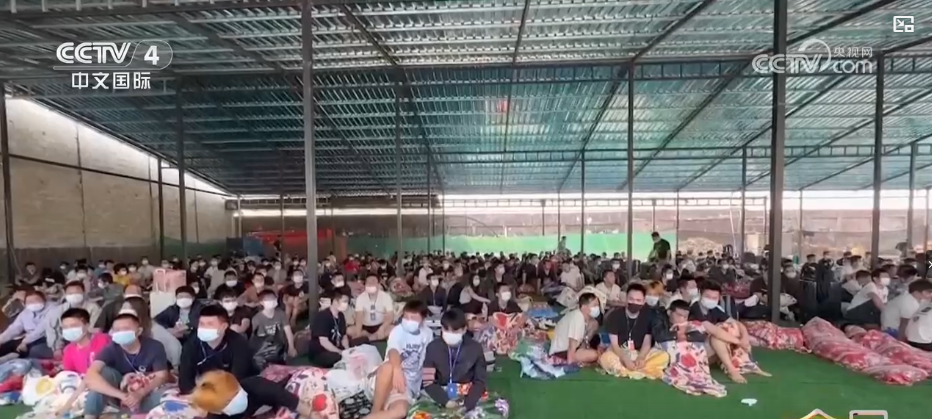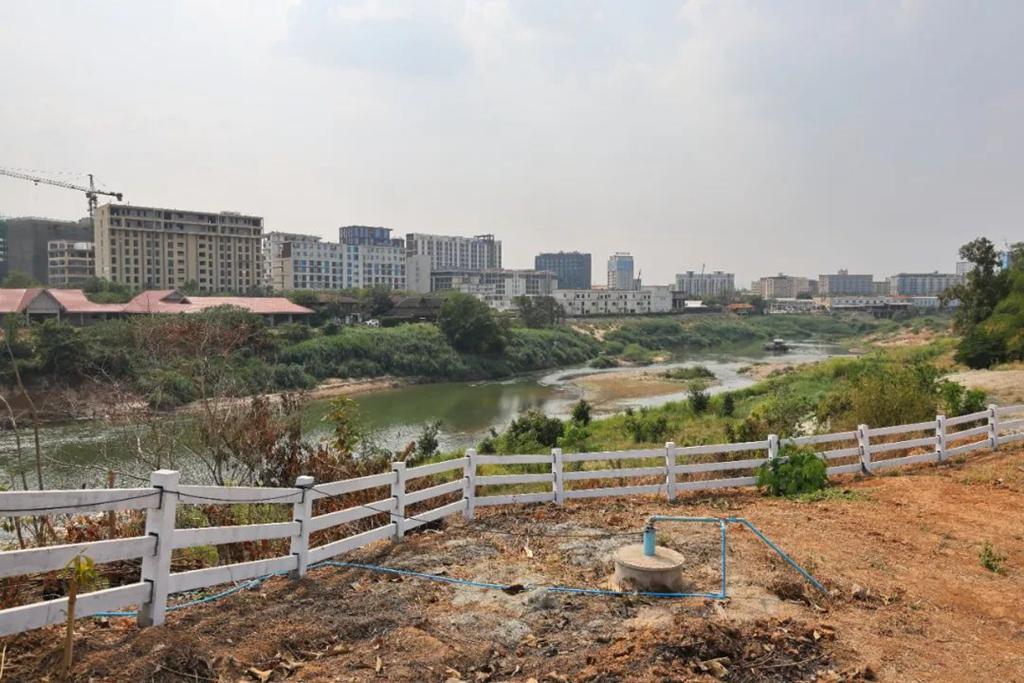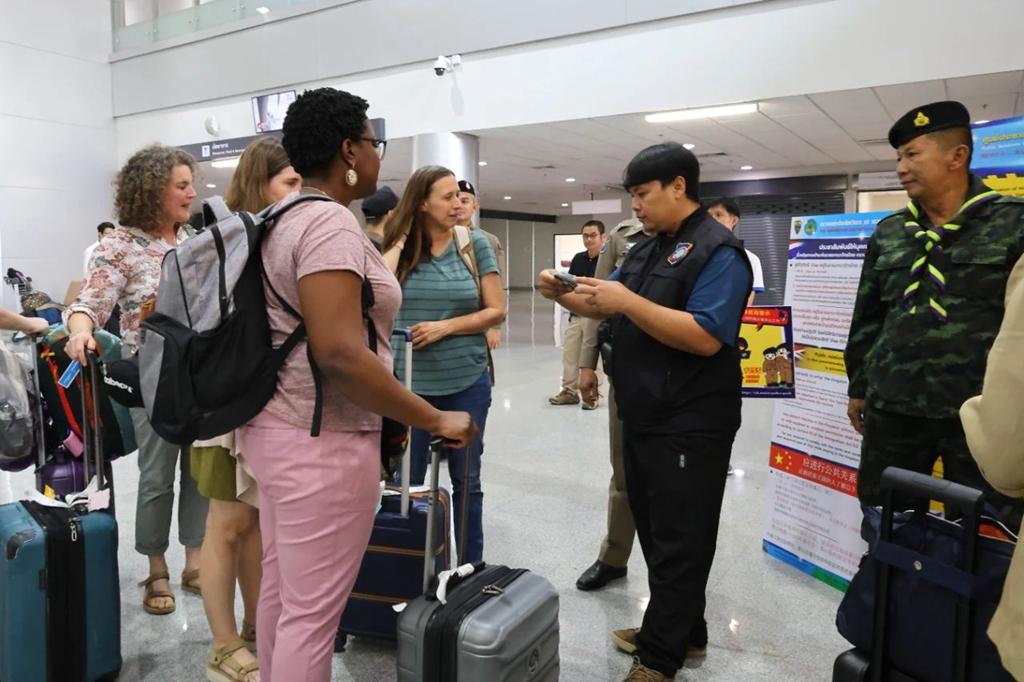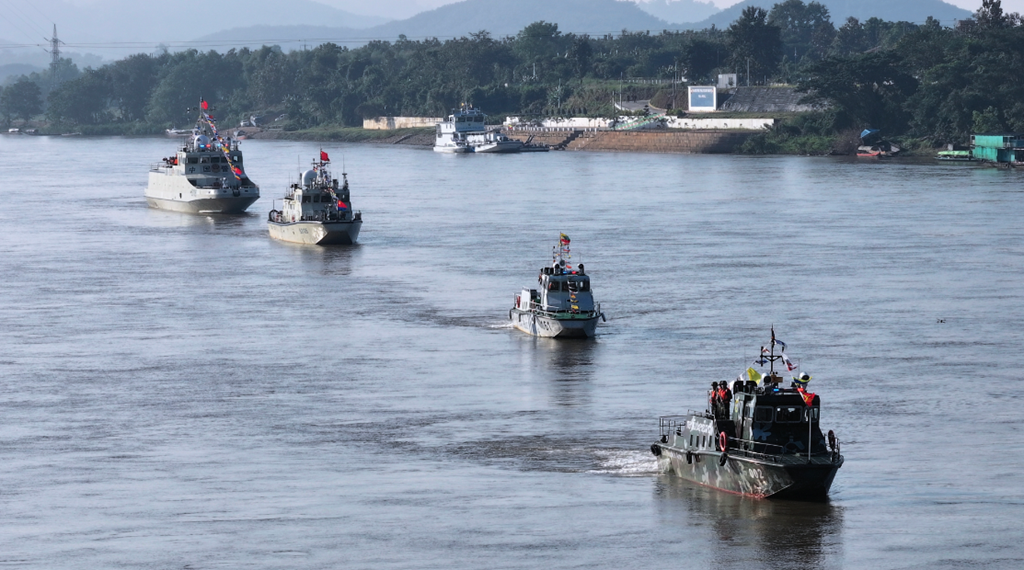Eric's Insight: Joint crackdown on telescam conducive to Lancang-Mekong community
China, Myanmar and Thailand launched a thunderous joint law enforcement operation targeting telescam hotspots such as Myawaddy earlier this month. This action not only demonstrated the three nations’ resolve to safeguard lives and property but also injected new momentum into building the Lancang-Mekong community of shared future through deepened cross-border law enforcement cooperation.

Suspects involved in telecommunications fraud cases are collectively detained by Chinese, Myanmar and Thai police.
Cross-border telescam threats regional security, growth
The Myawaddy area along the Myanmar-Thailand border, long plagued by ineffective governance, has become a breeding ground for telecom scam, online gambling, and human trafficking. Investigations reveal that local fraud syndicates refer to victims as "piglets" or “walking currency”. By coercing the victims into fraudulent activities through violence, the telescam gangs created a criminal ecosystem that "demands both money and life."
Official statistics show that more than 500,000 Thais fell victim to call center scams between June 2022 and the end of last year, with telecom fraud causing more than 60 billion baht ($1.8 billion) in financial losses. Chinese citizens remain a primary target: during the trilateral joint operation in February 2025 alone, approximately 7,000 trapped individuals were rescued, with the first batch of 200 Chinese nationals involved in fraud repatriated.
Such crimes not only violate citizens’ rights but also disrupt regional economic order. Border trade in Thailand’s Mae Sot district shrank by 50% due to fraud, while tourism suffered heavy losses. Clearly, cross-border fraud has become a non-traditional security threat demanding coordinated responses from Lancang-Mekong countries.

The telescam compounds in Myawaddy, Myanmar, are seen from the Mae Sot district in Tak province, Thailand, with a border river in between. Photo/People's Daily International
Joint law enforcement makes new paradigm for regional cooperation
The trilateral operation showcased an efficient and pragmatic model for joint law enforcement. First, Thailand severed power, fuel and internet supplies to five border areas in Myanmar, including Myawaddy. This caused a 40% drop in local electricity consumption, paralyzing criminal operations.
Second, the three nations established a joint task force and institutionalized mechanisms. Liu Zhongyi, China's assistant minister of public security, led on-site coordination in Myawaddy. China and Thailand set up a "coordination center" for cross-border law enforcement, while Myanmar’s Border Guard Force (BGF) assisted in expelling fraud suspects, forming a multi-layered crackdown.
Third, high-level consultations solidified mutual trust. During Thai Prime Minister Paetongtarn Shinawatra’s visit to China, combating fraud topped the agenda. The Lancang-Mekong Summit also reached consensus, shifting regional law enforcement cooperation from ad hoc responses to institutional frameworks.
These measures shattered the traditional approach of “separate crackdown on telescam”, marking a new phase in Lancang-Mekong cooperation on non-traditional security. As Chinese Foreign Ministry spokesperson Guo Jiakun said, the operation addressed both symptoms and root causes, rescuing victims while dismantling criminal networks for long-term governance.

Thai police officers have security check-ups over passengers at the airport of Mae Sot district in Tak province. Photo/People's Daily International
Security cooperation contributes to building of Lancang-Mekong community
The Lancang-Mekong community of shared future, guided by principles of "wide consultation, joint contribution, and shared benefits," has been bolstered through security cooperation and economic integration.
On the one hand, the joint anti-fraud campaign set a benchmark for regional security collaboration. Intelligence-sharing, joint patrols, and coordinated repatriations built transnational trust, offering a model for tackling drug trafficking and human smuggling. Thailand’s closure of high-risk ports in Mae Sot and addition of 5,000 checkpoints will extend security networks to grassroots communities.
On the other hand, improved security cleared obstacles for economic cooperation. Phase II of the China-Thailand High-Speed Railway project, launched in 2025, will eventually link Bangkok to Yunnan, spurring industrial parks and economic corridors. Border trade in Mae Sot is rebounding as fraud recedes, while Chinese tourist confidence gradually recovers. This virtuous cycle of security and development vividly embodies the "community of shared future" vision.
The trilateral crackdown on cross-border fraud is both a necessity for regional security and a breakthrough in building the Lancang-Mekong community of shared future. This operation proves that shared security fosters shared development. As the Lancang-Mekong Cooperation deepens, the joint-crackdown model may expand to broader domains, injecting enduring momentum into regional integration.

Law enforcement departments from China, Laos, Myanmar and Thailand conduct the "Vision 2024" joint crackdown action exercise against illegal activities in the Mekong River region in Muong Mom, Laos. Photo/Yunnan Daily
Writing by Wang Shixue; Proofreading by Zu Hongbing and Wang Huan